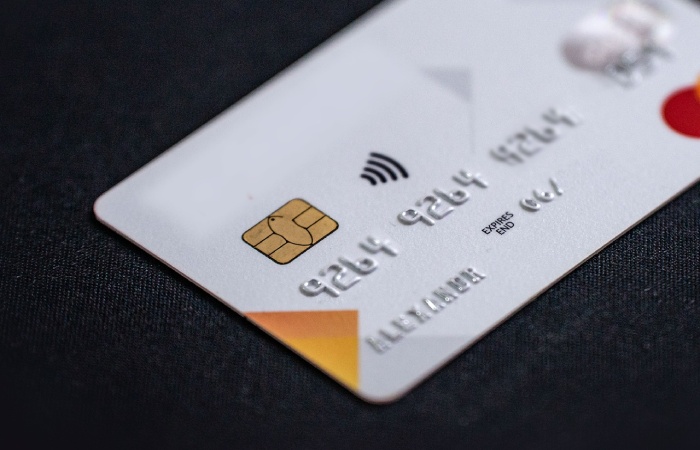Prepaid cards are popular among US Hispanic consumers who cannot qualify for a debit card through their traditional checking account or credit card. There are advantages to prepaid cards, and that’s why they’re popular with people looking to put limits on their spending, including parents teaching kids about money or people with debt problems.
Table of Contents
Here We Explain the Advantages and Disadvantages:
Advantages of Prepaid Cards
- No want to open a bank account or post a deposit like you would with a secured credit card. Instead, a prepaid card can be use as if you were writing a check or debit card.
- There are no attention charges like credit cards, and you cannot overdraw. If you’ve reached your credit limit, your demand maybe decline. However, prepaid cards allow overdrafts, but they are few. A carefully managed prepaid card will enable you to avoid going into debt as you can only spend what you have.
- There remains no credit check for this type of card. If you have no or bad credit, it doesn’t matter. You must have the money to load and use your card.
Disadvantages of Prepaid Cards
- One of the significant disadvantages is that you may not be able to use it to book a car or a hotel.
- In general, a prepaid card is more expensive than a debit card or checking account. The fees often charged to open the card, maintain the fund, load money, or use it for purchases vary but can be high.
- They offer less consumer protection than credit cards, especially regarding fraudulent transactions.
- It doesn’t help you build a credit past similar credit cards.
Get A Prepaid Card
Prepaid cards are ideal when:
- You are not entitled to a bank account
- You have bad credit or no credit
- You want to control your spending
- It want to give money away
- want to help someone use their money responsibly
It is essential to read the well print on card offers carefully. For the best-prepaid cards, click here. Compare the fees involved, including monthly maintenance fees, activation fees, and ATM usage fees. Using a card that lets you spend more than you deposit can incur high overdraft fees, so understand what that means.
Credit Cards and Debit Cards: Differences
Whether you have a private account or are looking for information on opening a business account, it is vital to understand the difference and how credit and debit cards are use.
The big question is: what differentiates one from the other? You can pay later with credit cards. That is to say. It allows deferred payment. On the other hand, debit cards are only paid for at the time of purchase with the current balance of accounts in the owner’s name.
Below, we will see each in detail and reveal their pros and cons that apply to individuals and businesses alike.
How are debit cards

Debit cards have long remained the most widely used means of payment for both personal and business purposes. It works as a financing instrument and serves as a cash substitute. However, it has been losing ground to credit for some time, partly because it is more profitable for banks, but it is not the optimal option for consumers who want to save as much as possible.
Advantages
- You anticipate debts. One of the many benefits is that money is continually withdrawn from the checking account in the holder’s name at the time of purchase, and the purchase is cancel if you do not have enough in your reports. It can be a way to save as your balance is the limit you have to spend.
- Available worldwide. This type can use to kind purchases globally, whether private or corporate, regardless of currency, as the change is automatic when the fee is charged.
- Reduced commissions. It will depend to some extent on banking policy. No debt indeed generates interest because there is no financing. However, some banks include them, e.g., B. Maintenance or use, depending on your contract.
- They are usually free. Most are free and have no issue, maintenance, or renewal fees. Indeed, it is a service associated with a current account.
- Fewer recruitment difficulties. All you need is a checking account, and in many cases, the bank will offer you one themselves.
- Many include insurance. Accidents or travel and benefits vary based on card value.
- Better control of expenses. Everything you buy and withdraw is display, making it easier to see where your savings went. You can request this information from the physical or electronic bank via your email.
Disadvantages
- Less fraud protection. Some (unlike others) do not have purchase and theft insurance, so in the event of theft or loss, the user will not be reimburse for the costs incurred.
- Limited cash withdrawals. The limit of these cards usually remains around 600 euros. It can do because the money can immediately be debited from the account, and overdrafts can be avoided.
Conclusion
Both are very useful and are a good decision, although you have to know when to use them. The most advisable thing is to regularly use debit cards to be able to control the money we have. On the other hand, the credit card can be use on exceptional occasions, out of necessity, and to get us out of financial trouble. Therefore, having one per user would suffice.
It is also advisable to negotiate the commissions charged with the corresponding financial entity since the different entities have their policy. Most will have some commission (issuance, renewal, maintenance, etc.)
